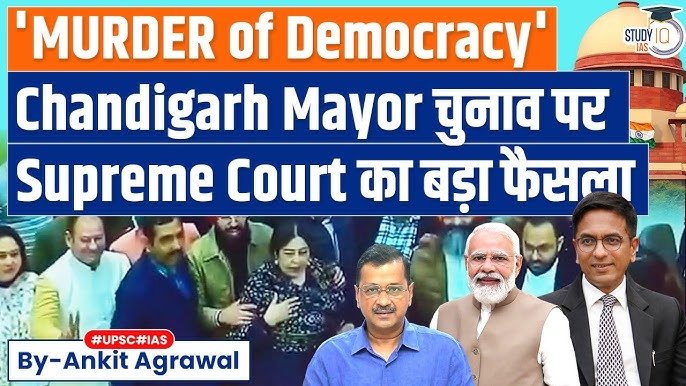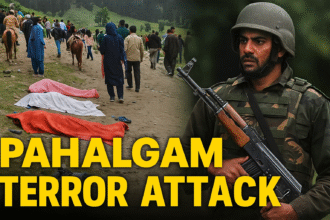Introduction
In the heart of India’s democratic process, the Chandigarh mayoral election controversy has stirred significant uproar, prompting the intervention of the highest judicial authority, the Supreme Court of India. The unfolding events surrounding the election have cast a shadow of doubt over the integrity of the electoral process, raising concerns about the sanctity of democracy itself.
Background of the Chandigarh Mayoral Election
The controversy erupted following the Chandigarh mayoral election, where the Aam Aadmi Party (AAP) found itself at the losing end despite initially securing a majority of votes. The situation took a dramatic turn when eight votes were marked as invalid, tipping the scales in favor of the Bharatiya Janata Party (BJP), the eventual winner. The AAP, aggrieved by the outcome, approached the courts seeking redressal, alleging foul play and electoral malpractice.

Emergence of Controversy
Central to the controversy is the conduct of the Returning Officer, Anil Masih, whose actions during the election process have come under intense scrutiny. The Supreme Court, upon reviewing video evidence, expressed dismay at Masih’s behavior, noting his apparent tampering with the ballot papers. Chief Justice DY Chandrachud. Visibly outraged. Condemned Masih’s actions as a “mockery” of democracy. Vowing to uphold the integrity of the electoral process.
Supreme Court’s Response
The video footage. Presented before the Supreme Court. Revealed Masih’s unsettling behavior as he defaced the ballot papers while making direct eye contact with the CCTV camera. Such brazen conduct. Captured on camera. Has raised serious doubts about the fairness and transparency of the electoral process in Chandigarh. The Supreme Court’s decision to intervene underscores the gravity of the situation and the imperative to safeguard the principles of democracy.
Legal Implications and Calls for Action
The emergence of new video evidence, shared on social media platforms, further corroborates the allegations of electoral misconduct. In the latest footage. Masih can be seen signing the ballot papers. With the CCTV camera capturing his actions in real-time. This revelation has added fuel to the fire. Reigniting calls for a thorough investigation into the election process and accountability for those responsible.
The Supreme Court’s stern admonition of Masih’s actions sends a clear message: electoral malpractice will not be tolerated, and those found guilty will be held accountable. The court’s directive to preserve all relevant records and summon Masih for a personal appearance underscores its commitment to upholding the rule of law and ensuring a fair and transparent electoral process.
Public and Political Reactions
The implications of the Chandigarh mayoral election controversy extend beyond the confines of the city. Reverberating across the political landscape of the country. The integrity of the electoral process is paramount to the functioning of a vibrant democracy. And any attempt to subvert it must be met with swift and decisive action.
As the legal proceedings unfold. All eyes are on the Supreme Court to deliver justice and restore faith in the electoral process. The outcome of this case will not only determine the fate of the Chandigarh mayoral election but also set a precedent for future electoral disputes. Reaffirming the judiciary’s role as the guardian of democracy.
Also Read : “Chandigarh Mayor Elections: Supreme Court’s Verdict”
Conclusion
In conclusion, the Chandigarh mayoral election controversy serves as a stark reminder of the challenges facing India’s democratic institutions. The Supreme Court’s intervention is a testament to its unwavering commitment to upholding the rule of law and ensuring the integrity of the electoral process. As the nation awaits the court’s verdict, one thing remains clear: democracy must prevail, no matter the odds.





